- Home
- Raymond Benson
Never Dream Of Dying
Never Dream Of Dying Read online
Never Dream of Dying
By Raymond Benson
Ian Fleming Publications
IAN FLEMING PUBLICATIONS
E-book published by Ian Fleming Publications
Ian Fleming Publications Ltd, Registered Offices: 10-11 Lower John Street London
www.ianfleming.com
First published in the UK by Hodder and Stoughton 2001
First published in the USA by G.P.Putnam’s Sons 2001
Copyright © Ian Fleming Publications as Trustee, 2001
All rights reserved
James Bond and 007 are trademarks of Danjaq, LLC, used under licence by Ian Fleming Publications Ltd
The moral right of the copyright holder has been asserted
This book is sold subject to the condition that it shall not, by way of trade or otherwise, be lent, resold, hired out, or otherwise circulated without the publisher’s prior consent in any form of binding or cover other than that in which it is published and without a similar condition including this condition being imposed on the subsequent purchaser
ISBN: 978-1-906772-50-5
JAMES BOND TITLES BY RAYMOND BENSON
NOVELS
Zero Minus Ten (1997)
The Facts of Death (1998)
High Time to Kill (1999)
DoubleShot (2000)
Never Dream of Dying (2001)
The Man With the Red Tattoo (2002)
FILM NOVELIZATIONS
(based on the respective screenplays)
Tomorrow Never Dies (1997)
The World is Not Enough (1999)
Die Another Day (2002)
SHORT STORIES
Blast From the Past (1997)
Midsummer Night's Doom (1999)
Live at Five (1999)
ANTHOLOGIES
The Union Trilogy (2008)
Choice of Weapons (2010)
ABOUT THE AUTHOR
Besides writing official James Bond fiction between 1996-2002, RAYMOND BENSON is also known for The James Bond Bedside Companion, which was published in 1984 and was nominated for an Edgar. His first two entries of a new series of thrillers, which Booklist called “prime escapism,” are The Black Stiletto and The Black Stiletto: Black & White. As “David Michaels” Raymond is the author of the NY Times best-sellers Tom Clancy’s Splinter Cell and Tom Clancy’s Splinter Cell—Operation Barracuda. He recently penned the best selling novelizations of Metal Gear Solid and its sequel Metal Gear Solid 2—Sons of Liberty, as well as Homefront: the Voice of Freedom, co-written with John Milius. Raymond’s original thrillers are Face Blind, Evil Hours, Sweetie’s Diamonds, Torment, Artifact of Evil, A Hard Day’s Death and the Shamus Award-nominated Dark Side of the Morgue. Visit him at his websites, www.raymondbenson.com and www.theblackstiletto.net.
For Max
CONTENTS
TITLE PAGE
COPYRIGHT PAGE
ABOUT THE AUTHOR
1 THE NEW WAR
2 THE BLIND MAN
3 THE FILMMAKER
4 THE HYDRA
5 THE TATTOO
6 THE SAILOR
7 THE ASSIGNMENT
8 THE ALLY
9 THE MAZZERE
10 THE STUDIO
11 THE HOUSE
12 THE GIRL
13 THE FIRST VISIT
14 THE HORSES
15 THE CASINO
16 THE MOVIE
17 THE TRAWLER
18 THE GETAWAY
19 THE INFILTRATION
20 THE SECOND VISIT
21 THE PRISONERS
22 THE ORDEAL
23 THE RAT
24 THE BREAKOUT
25 THE SCREENING
26 THE RAID
27 THE SEARCH
28 THE SHOWDOWN
29 THE FINAL VISIT
30 THE END
ACKNOWLEDGMENTS
ONE
THE NEW WAR
A TINY BEAD OF SWEAT APPEARED AT THE COMMANDANT’S RIGHT TEMPLE and lingered there, waiting for the moment when it would drop off and trickle down the man’s high, scarred cheekbone.
James Bond knew that the French commandant was nervous. He empathized with the man, for he, too, never went into a situation such as this one without feeling some amount of anxiety. It was normal. It was healthy. It kept one sharp.
They peered around the edge of the carpenter’s shop. It was night and the studio had kept the buildings’ exterior lights on. Besides providing plenty of illumination, this created the illusion that the film studio lot was in reality another village with its own paved roads, buildings and community. The palm trees, standing like sentinels around the property, tended to further perpetuate the notion that this was a Hollywood-style studio, even though it was located in the south of France. The trees, Bond had heard, were not indigenous to the country. They had been imported from Africa by Napoleon in the nineteenth century.
Bond focused his attention on the two bungalows near the soundstage. The lights in the windows had not changed.
“Are you absolutely sure that they’re in there?” Bond asked Commandant Malherbe in French. “They might have left.”
“We have been watching them all day and never saw them leave,” Malherbe whispered, taking a moment to wipe his forehead with his sleeve. It was a mild January day, nothing unusual for the Riviera at this time of year.
Bond surveyed the scene once again. The two bungalows, used by the studio as dressing rooms, stood quietly at the dead end of a road between two soundstages. One of the soundstages was currently in use, even at 9:45 in the evening. According to the French police’s sources, a television movie was being filmed and was behind schedule. They were making up for lost time. Every once in a while, a technician or actor stepped outside the stage door for a cigarette. Signs of use were everywhere—several cars were parked nearby and a good deal of equipment had been stacked near the loading doors—crates, boxes and petrol drums. For special effects, perhaps?
There were no vehicles in front of the bungalows. Bond was still not convinced that the Union thugs inside were planning to move the arms tonight. If there really were arms.
Bond felt compelled to speak. “As an official observer for the United Kingdom, I have to give you my recommendation not to carry out this raid. There are too many civilians about, in my opinion.”
“Noted, but I have my orders, Commander Bond,” Malherbe said. “We are not to let them leave. We are to catch them with their hands dirty. They’ve got millions of francs worth of guns in there. Do you really want them to get away with that? Surely you must have a rather personal score to settle with the Union yourself?”
Bond chose not to answer him, but merely nodded grimly and moved back around the empty building to where Mathis and the others were huddled.
Bond’s long-time French colleague and friend, René Mathis, was quite happy to observe from the sidelines and let the French RAID officers do their jobs. Mathis thought that they looked much too young for this sort of job, but then again, nearly everyone in this business was younger than he was.
Bond crouched beside him and said, “René, I have a bad feeling about this.”
Mathis hesitated a moment and then said, “Me too.”
“Call it off.”
“I can’t.”
“Your information could be wrong.”
“It often is.”
Mathis looked hard into Bond’s eyes and then grinned with a sardonic gleam in his eyes. Bond’s old friend was being stubborn.
Bond studied Mathis’ eyes. He and Mathis had a long history together. The Frenchman had even saved his life once. He owed the man a lot. Bond had to trust him and his organisation.
The logic behind the plan seemed sound enough. For some time, Math
is’ outfit, the DGSE, which had swallowed up the old Deuxième Bureau years ago, had been gathering reliable intelligence on the whereabouts of Union arms depots ever since France had been the target of a Union bombing spree. No doubt the criminal organisation had been funded by one of the country’s independently minded terrorist groups, for the Union purportedly never took political sides. They were only in it for the money.
And made money they had. In the last three years, they had grown from a small group of terrorists and mercenaries based in Morocco to an international network of criminal enterprise. The Union’s mysterious leader, Le Gérant, remained an enigma and his location was unknown. The organisation had moved its headquarters out of Morocco over a year ago; discovering its current location was the priority of several nations’ law enforcement divisions. The CIA, FBI, SIS, DGSE, and Mossad had declared the Union to be the world’s most dangerous threat.
It was true that Bond had no small reason to hate the Union. He had been involved in two of the syndicate’s more dangerous schemes and had personally been the target of one of them. The Union had been responsible for the deaths of several people Bond had been close to. He had seen the organisation stop at nothing to invest time, energy and manpower into seemingly impossible stratagems that ultimately ended in the destruction of its target and the immediate satisfaction of its current employer.
At SIS it was known as “the New War,” meaning that the conflict between the Union and the world’s law enforcement and intelligence agencies had become akin to a war with an unfriendly foreign power. As in a real war, guerrilla tactics were used to gain information and strike at the enemy. Known safe houses all over the world, for both sides, were bombed. Lives were lost. But money talked and agents were turned. Retaliations were frequent. In seven months the New War had reached a stalemate.
Finally, word had come from René Mathis. When Bond had learned in Morocco that Le Gérant might possess a Corsican surname, all investigations had focused on France and her headstrong island in the Mediterranean. Bond re-established contact with Mathis, who normally worked out of Paris. As it happened, the DGSE had placed Mathis, once the head of the Deuxième Bureau, on its own Union task force; thus the two old friends were able to share information.
One of Mathis’ agents had been following the trail of Julius Wilcox, known to be one of Le Gérant’s top lieutenants, or “commandants,” as they were called in the Union’s inner circle.
Wilcox was reportedly working with Union arms dealers operating through Western Europe. He had been sighted several times in the Côte d’Azur, mostly around Nice and Cannes, and occasionally in Monaco. When his movements were traced to the old Bisset film studios in west Nice, the DGSE convinced SIS and the CIA that the Union was storing illegal arms there.
Until quite recently, the film studios had only been in partial use. Originally constructed in 1927, they had been the home of many famous motion pictures. But after the heyday of the sixties, the studio facilities had fallen into disrepair and were now terribly outdated. Most of the buildings, long abandoned, stood rotting on the lot. Only areas essential to small films currently in production were kept functional.
A well-known French film producer and director had purchased the studio a month ago. Mathis had told Bond that although the man was a celebrity, the DGSE were keeping their eyes on him. Léon Essinger, an influential but controversial figure in French cinema, had a rather shady past. Mathis had spent some time attempting to link Essinger to the Union, but had come up empty-handed. At any rate, with Essinger’s purchase, the film studios, now re-named Côte d’Azur Studios, were scheduled to see a vast facelift within two years.
Commandant Malherbe appeared and whispered to Bond and Mathis. “I have the go-ahead. This is it, gentlemen. Are your vests secure?”
Bond tugged at his bullet-proof vest and replied, “Mine’s secure, but I’m just an observer, remember?” He smiled at the French officer.
Mathis said, “Commander Bond is concerned about the number of innocent civilians about, and I agree with him.”
“We’ll do the best we can,” Malherbe said. “But if we wait any longer, the Union may attempt a getaway. That could create chaos all over the studio grounds and that’s infinitely more dangerous. At least we can control a raid ourselves.” The commandant adjusted the microphone on his headset and spoke into it. “Lieutenant Busnel? Are you ready?”
The French officer listened and then gave a thumbs-up sign. He turned to a sergeant at his side and barked an order. Four men picked up a metal battering ram and prepared to rush forward. Malherbe directed other men to their positions, guns drawn.
Bond felt helpless as he crouched beside Mathis. He had his Walther on him, but technically he was prohibited from using it here. This was a French government operation. To hell with that, he thought. He would damn well use it if he had to.
The commandant gave the order and the four men with the battering ram rushed toward the door of the bungalow on the right.
Later, survivors would swear that the four men were instantly vaporized by the fireball that suddenly engulfed the area. It was a tremendous explosion, one that rocked the ground and shook the buildings. The noise was deafening.
Bond pulled Mathis to the tarmac as waves of searing heat passed over his head. He could hear shouts of pain and terror from the men near him. Then came the gunfire. Bond looked around the corner. Through the smoke, he could vaguely see men on the roof of the soundstage. They were firing at the RAID officers.
It had been a trap. A typical Union trap.
“Roll over to the edge of the building!” Bond shouted at Mathis. The Frenchman was cursing and drawing his own gun, a 9mm Smith &Wesson, but he managed to do as he was told. Bond rolled with him, ultimately pushing himself against the side of the building. He crawled slowly on his belly so that he could get a better view around the edge of the building at the mayhemin the street between soundstages.
There was nothing left of the first bungalow and the other bungalow was on fire. Both had obviously been empty. Several RAID men were lying face down on the street. The others were scrambling for cover as bullets sprayed the area from above. RAID men were falling left and right. The assault was a disaster.
Bond rotated his body so that he could get a clearer view of the soundstage roof. There were three men with machine guns, blasting at anything that moved on the ground. Bond drew the Walther, took a bead on one of the killers, and squeezed the trigger. The man’s head jerked and then his body rolled forward and sailed smoothly off the roof. The other two men looked around, trying to determine where the shot had come from. One of them spotted Bond and pointed. Bond jack-knifed to his feet, scrambled across the road so that he was beneath the shooters and hugged the wall. Unfortunately, there were three more men with machine guns on the roof of the building he had just left. They began to fire at him. Bond leaped for cover behind a large crate, but a bullet seared the top of his thigh and sent a burning shot of pain down his leg. Once under cover, he examined the wound and saw that it was superficial, but it hurt like hell.
The noise and chaos had attracted the attention of the production people inside the soundstage. A stage manager stuck his head out the door, saw the horror and immediately slammed the door shut. Alarms sounded.
Bond noticed two RAID men pinned down behind crates twenty feet along the wall to his left, unable to move away from the gunfire. He aimed at the men on the roof and fired. Both of them spun around and fell. The two RAID men waved at him and emerged from behind the crates, firing their guns.
A white van tore around the corner and sped down the street toward the burning bungalow. As it screeched to a stop, the back doors opened. Two more men with sub-machine-guns jumped out and sprayed the area with bullets. The remaining Union men on the roofs jumped onto the crates, then slipped off to their feet—obviously professionally trained for such stunts. They ran and climbed inside the back of the van as the two shooters continued to spray the road.
&n
bsp; Bond looked around frantically for a better weapon. One of the RAID men lay dead in the road about ten feet away from him. An MPL sub-machine-gun was by his feet. Bond tempted fate and simply bolted out into the rain of gunfire. He hit the tarmac hard and rolled like a log toward the body. He grabbed the MPL and, on his belly, aimed it at the men by the van. The machine gun vibrated hard in his arms as the bullets found their targets. The men slammed back against the van and fell to the ground. The others inside the vehicle attempted to close the doors, but some of Bond’s bullets penetrated the metal. One of the men fell out as the van began to move backward. The vehicle turned and backed up against the soundstage, near the barrels of petrol. The driver was attempting to turn around so that they could speed out of the studio lot.
Thinking quickly, Bond aimed his gun at the petrol drums and fired. The bullets pierced the metal and ignited the petrol. The van was sent flying in the ensuing explosion. It rolled twice and settled on its side as the passengers scrambled to get out. But they were too late … the van’s petrol tank exploded, killing them all.
Bond got to his feet as three RAID men ran toward the soundstage. The exploding petrol barrels had set the building on fire. Mathis, out of breath, ran to Bond and said, “We have to get those people out of there!”
The wooden building was very old and the fire spread quickly. Burning support beams collapsed and covered the door, trapping the people inside. The burning van was pushed up against the loading doors, eliminating that as a possible exit.
“Is there another way out?” Bond shouted.
“God, I hope so,” Mathis said.
Bond ran down the road to circle the soundstage. On another side of the building, black smoke was pouring out of a broken first floor window. He could see a woman there, her face frozen in terror. He called to her in French to jump, but she couldn’t bring herself to do it.
He had never seen a fire spread so quickly. These studio buildings were firetraps waiting to happen. They probably should have been condemned and flattened years ago, he thought.

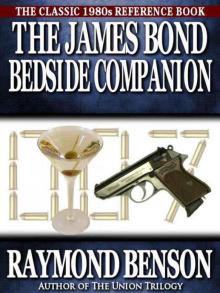 The James Bond Bedside Companion
The James Bond Bedside Companion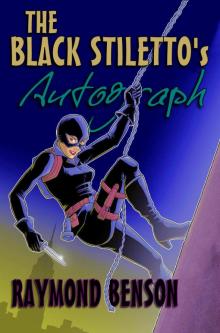 The Black Stiletto's Autograph
The Black Stiletto's Autograph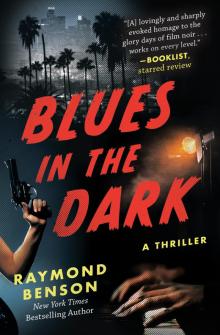 Blues in the Dark
Blues in the Dark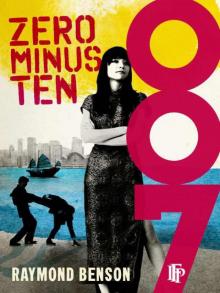 Zero Minus Ten
Zero Minus Ten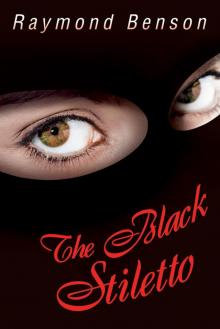 The Black Stiletto
The Black Stiletto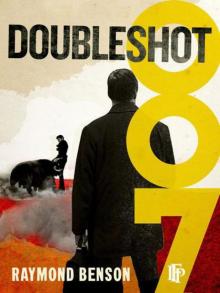 Doubleshot
Doubleshot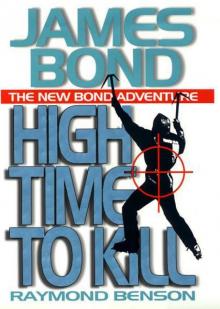 High Time To Kill rbb-3
High Time To Kill rbb-3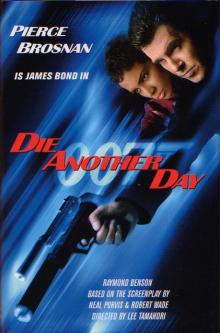 Bond Movies 07 - Die Another Day
Bond Movies 07 - Die Another Day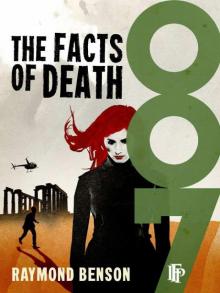 The Facts Of Death
The Facts Of Death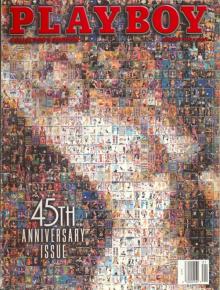 Midsummer Night's Doom
Midsummer Night's Doom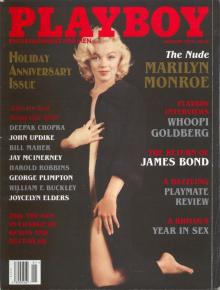 Blast from the Past
Blast from the Past The Secrets on Chicory Lane
The Secrets on Chicory Lane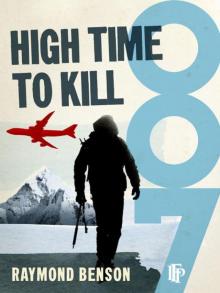 High Time To Kill
High Time To Kill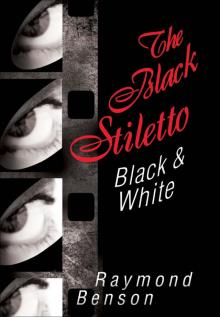 The Black Stiletto: Black & White
The Black Stiletto: Black & White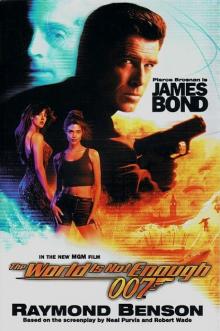 The World Is Not Enough jb-1
The World Is Not Enough jb-1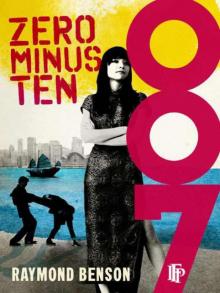 Zero Minus Ten rbb-1
Zero Minus Ten rbb-1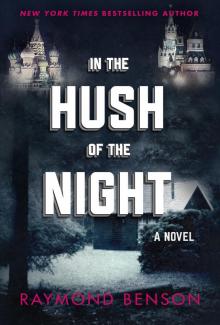 In the Hush of the Night
In the Hush of the Night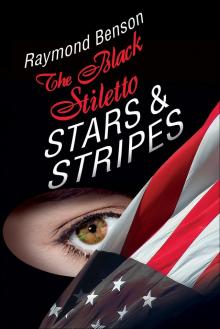 The Black Stiletto: Stars & Stripes
The Black Stiletto: Stars & Stripes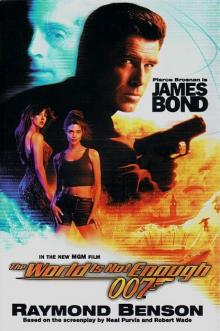 Bond Movies 06 - The World Is Not Enough
Bond Movies 06 - The World Is Not Enough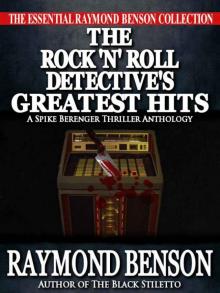 The Rock 'n Roll Detective's Greatest Hits - A Spike Berenger Anthology
The Rock 'n Roll Detective's Greatest Hits - A Spike Berenger Anthology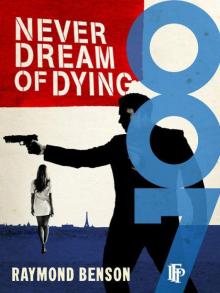 Never Dream Of Dying
Never Dream Of Dying